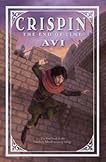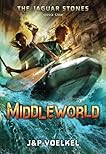From Shelf Awareness 2/4/11
Saqi Books, with offices in San Francisco, London and Beirut and distributed in the U.S. by Consortium, offers two more books that pertain to the events in Egypt.
The Muslim Brotherhood: The Burden of Tradition by Alison Pargeter, published last December in hardcover, is a history of the secretive but extremely influential Egyptian group that was founded in 1928.
Brothers in Arms: The Story of al-Qa'ida and the Arab Jihadists by Camille Tawil, which will be published in April in trade paper, explores how the failure of jihadi movements in Egypt, Libya and Algeria in the 1990s and the War on Terror have brought militant Islamic groups increasingly under the influence of Osama bin Laden.
From the NYT 2/3/11
For another view of the NYT list see What Does the NYT think you should read about Egypt? I'll copy the post below the NYT list
FEBRUARY 3, 2011, 4:45 PM
A Reading List for the Egypt Crisis
By ALEXANDER STAR
It took only a few days for Egyptian protesters to bring the regime of Hosni Mubarak to near collapse. But it took decades for the conditions for revolt to ripen. A range of widely noted books offer clues to the country’s accumulated discontents and thwarted desires. Max Rodenbeck’s Cairo: The City Victorious is a cultural and social history of the Arab world’s largest city, written by the Economist’s Middle East Correspondent. Mary Anne Weaver’s A Portrait of Egypt examines Egyptian society in the 1990s, with an emphasis on Islamist opponents of the Mubarak regime.
Dispatches From the Book Review
In recent years, scholars have fervently debated the evolution of Egypt’s main opposition movement, the Muslim Brotherhood. Does it seek to drastically remake Egyptian society along strict religious lines, or has it entered a “post-Islamist” phase characterized by moderation and tolerance? The latter argument is made by Carrie Wickham in her study of grass-roots activists, Mobilizing Islam. More jaundiced views of the movement in Egypt and its offshoots elsewhere can be found in a new collection edited by Barry Rubin entitled The Muslim Brotherhood. Even as the Brotherhood moderated its message and perhaps its worldview, some of its former members turned to acts of spectacular violence. Their doings are the subject of Giles Kepel’s Muslim Extremism in Egypt, and Lawrence Wright’s The Looming Tower, which suggests that Mubarak’s torture cells radicalized Egyptian Islamists such as the future al Qaeda leader Ayman al-Zawahiri, and helped bring about the Sept. 11 attacks. Lee Smith’s The Strong Horse explores the Mubarak government’s cynical efforts to manipulate popular sentiment and maintain power.
Though Egypt’s cultural prominence has faded, it remains the home of important literary figures, many of whom work in the shadow of the late Nobel laureate Naguib Mahfouz. Mahfouz’s Cairo Trilogy and Cairo Modern examine the ideological and erotic entanglements of Cairenes in the last years of British imperial rule. Alaa Al-Aswany’s The Yacoubin Building is a popular novel about a Cairo apartment house whose fortunes reflect those of the country at large. Among the most admired Egyptian novels of recent years is Sonallah Ibrahim’s Zaat, which turns an office worker’s aspirations to become a world-class consumer into bitter comedy. A many-layered picture of 20th century Egypt emerges in the novelist Taha Hussein’s memoir The Days, which follows a poor, blind village boy who makes his way to Cairo, acquires an education, loses his university post for his controversial writings on Egypt’s pre-Islamic past, and eventually becomes a cultural hero.
Readers interested in assessing American influence in Egypt might turn to Master of Games by the longtime CIA officer Miles Copeland Jr.. Copeland, the father of Stewart Copeland, the drummer for the Police, and Miles Copeland III, the record producer, relates (and perhaps embellishes) his elaborate efforts to keep General Nasser from slipping into the Soviet orbit. In his classic Arabic Thought in the Liberal Age, the historian Albert Hourani looked back further to a time in the early 20th century that seems especially relevant now — a moment when Egyptian and other Arab thinkers steeped in Enlightenment ideals hoped to see a robust democracy emerge from a moribund dictatorship.
----------
What Does the NYT think you should read about Egypt?
Despite a general worldwide support for the aspirations of the Egyptian people, some do seem to be buying the regime’s spin on the uprising.
Indeed, the NY Times “Paper Cuts” section seems to have scrambled on board the “if not me, then chaos and hardline Islamism!” bandwagon. Their “Reading List for the Egypt Crisis” starts out with Max Rodenbeck’s perfectly acceptable Cairo: The City Victorious, but then quickly descends into offerings that focus on Islamists and Islam: Mobilizing Islam, The Muslim Brotherhood, Muslim Extremism in Egypt, and The Looming Tower.
Are you scared yet?
From the literary side of the world, they unsurprisingly suggest the Cairo Trilogy, by our Nobel Prize winning Naguib Mahfouz, as well as Alaa al-Aswany’s internationally best-selling Yacoubian Building (because it was made into a movie?), Sonallah Ibrahim’s Zaat, and Taha Hussein’s The Days. Yes, the Trilogy and The Days are beautiful books, but the only one that seems relevant to the aforementioned “crisis” is Zaat.
Of course, mixing politics and literature is always dubious: Let’s not pretend we can learn much about the aspirations and fears of contemporary Russians by reading Tolstoy.
As to “relevant” Egyptian authors, you could read Nawal al-Saadawi, because she’s down in Tahrir and a brave soul if ever there was one, but she’s hardly Egypt’s best literary stylist. Mohamed Mansi Qandil has a book that’s perhaps both “relevant” and beautiful: Moon Over Samarqand, translated by Issa J. Boullata and published by AUC Press. Plus, it’s got Islamists in it!
Khaled al-Khamissi’s Taxi is good pop literature, fun to read, and paints a contemporary Egyptian landscape. It was translated by Jonathan Wright and published by the embattled Aflame, so I hope you can still get it. If you can, also get a copy of Sonallah Ibrahim’s gorgeous Stealth (translated by Hosam Aboul-Ela), which has no particular relevance to events in Tahrir, but it’s such a lovely novel, and Ibrahim is also a brave soul.
Hamdi Abu Golayyel’s A Dog with No Tail paints a circling and re-circling portrait of deprived Egypt; it won the Naguib Mahfouz Medal for Literature and has a great deal to recommend it.
And, if you really insist on reading about Islamists, at least read an Egyptian. Khaled al-Berry, shortlisted for this year’s International Prize for Arabic Fiction, published a memoir in 2009 that follows his time as a member of an Islamist movement, and—probably more importantly—sketches a picture of his very relatable adolescence. Life is More Beautiful Than Paradise was translated by Humphrey Davies and published by AUC Press.
I love Fathy Ghanem’s The Man Who Lost His Shadow, which probably throws no light on Egypt’s current constitutional crisis. However, many of the more recent books that talk about protests and police—such as Butterfly Wings, by Mohamed Salmawy—are not yet available in English.
If you want politics, I don’t suggest reading the books of former CIA officers, a la Paper Cuts. But do go and pick up Tim Mitchell’s Rule of Experts: Egypt, Techno-Politics, Modernity and his yellow book, Colonising Egypt.
Friday, February 4, 2011
Subscribe to:
Post Comments (Atom)































No comments:
Post a Comment